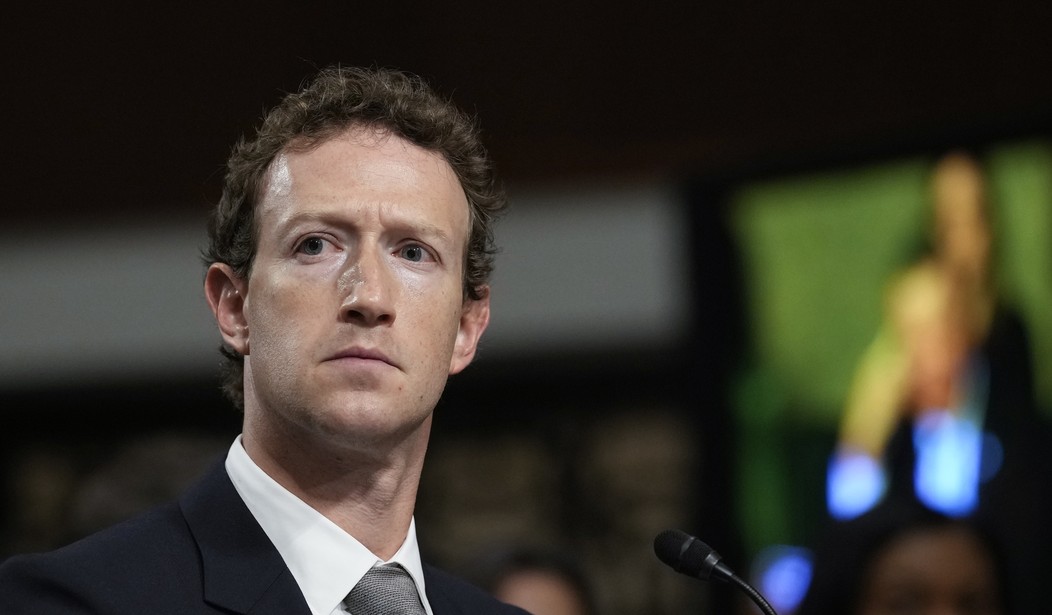Mark Zuckerberg’s Thanksgiving Eve meeting with Donald Trump at Mar-a-Lago was no casual dinner. The timing and location (Thanksgiving Eve at Trump’s personal residence) make it clear that this was much more than a social visit. It’s a calculated move by Zuckerberg to rebuild a bridge he almost burned when Facebook banned Trump. Trump’s political resurgence is undeniable, and the stakes couldn’t be higher for Meta.
This shift is especially notable given the recent history between Trump and Meta. On January 7, 2021, Facebook suspended Trump indefinitely under Zuckerberg’s leadership, citing supposed “risks” of allowing him to remain on the platform after the Capitol riots. What followed (and let up to it too) was a targeted silencing—not just of Trump but of countless conservative voices.
By June 2021, Meta extended Trump’s suspension for at least two years and abandoned its policy of treating politicians’ posts differently than other users. Combined with heavy-handed fact-checking and algorithmic changes aimed at suppressing conservative viewpoints, these actions solidified Meta’s image as a tool of the radical left rather than a neutral platform for free speech.
Now, Zuckerberg appears to be rethinking that stance. Why? Because banning Trump and censoring conservatives was more than just bad optics—it was bad for business. Trump’s influence has only grown, and with a return to the White House on the horizon, Meta’s legal and financial future may depend on reversing course.
The heart of the issue lies in Section 230 of the Communications Decency Act. This is the foundation of Big Tech’s success, shielding platforms like Facebook from liability for user-generated content. Section 230’s protections allowed companies like Meta to thrive, fostering open debate without fear of lawsuits. Yet, over time, platforms like Meta took these protections for granted, turning their neutrality into a tool for leftist activism.
Recommended
The irony here is staggering. Section 230 was designed to encourage free speech, yet Meta used its shield to suppress it—particularly on the right. Conservative voices were flagged, fact-checked, demoted, or outright banned, often under pressure from government agencies or activist groups.
It’s no surprise that calls to reform or repeal Section 230 are growing louder. Lawmakers on both sides of the aisle have criticized Big Tech’s overreach, and a second Trump administration could finally bring these issues to a head. If Section 230 is weakened or repealed, companies like Meta could face many lawsuits over their biased moderation practices. That’s the existential threat Zuckerberg is likely trying to avoid in his attempts to court Trump.
Social media platforms were once seen as the great equalizers, empowering ordinary people to challenge the mainstream narrative. Facebook was once a beacon of free expression, attracting users who distrusted traditional media. But over the years, it lost its way, becoming a tool for ideological conformity rather than a forum for open dialogue.
Elon Musk’s turnaround at Twitter (now X) offers a stark contrast. Under Musk, the platform embraced free speech principles, rolling back censorship policies and restoring trust among users. Zuckerberg, by comparison, has mostly stood on the sidelines—until now.
Zuckerberg seems to recognize that business as usual or continued silence is unsustainable. His meeting with Trump signals a late attempt to reposition Meta as neutral, perhaps to preempt the regulatory reckoning that could come with a Trump administration.
Once broken, trust is incredibly hard to rebuild. Millions of users who felt betrayed by Meta’s heavy-handed censorship have fled to alternative platforms like Trump’s Truth Social and Musk’s X (Twitter). Meanwhile, lawmakers, emboldened by years of complaints about Big Tech’s abuses, may not be inclined to preserve the protections that allowed this behavior to flourish.
If Section 230 is repealed or weakened, it will be a game-changer. Social media companies will no longer be able to censor with impunity, and lawsuits will hold them accountable for their moderation practices. This would force platforms to choose to embrace true neutrality or risk lawsuits or, even worse, irrelevance.
Zuckerberg’s meeting with Trump may be a sign of things to come—a recognition that the era of unchecked Big Tech power is ending. Whether this signals a genuine change in Meta’s approach or simply a desperate attempt to protect its bottom line remains to be seen.
One thing, however, is clear: censorship was never the answer. If Meta wants to survive and thrive, it must follow the path of Elon Musk, rediscovering the principles that made it successful in the first place—free speech, open dialogue, and neutrality. Only then can it hope to regain users' trust and reclaim its place as a true platform for the people.
Shaun McCutcheon is a Free Speech advocate, an Alabama-based electrical engineer, the founder of Multipolar, and was the successful plaintiff in the 2014 Supreme Court case McCutcheon v. FEC.
























Join the conversation as a VIP Member